Education Conference
Sunnybrook Education Conference: Friday, November 26, 2021
Anti-racism, diversity, inclusion and equity issues are more important than ever before. This year’s Sunnybrook Education Conference aims to deepen the discussion, as well as inspire authentic action through a broad range of world-class speakers, presentations and interactive workshops.
This unique virtual conference is designed for the Greater Toronto Area (GTA) health-care community and external partners in education.
Friday, November 26, 2021
10:00 a.m. - 2:00 p.m.
» Register for this virtual event by November 22, 2021 at 11:59 p.m.
Keynote talk
Enabling an Inclusive and Equitable Culture Through our Daily Commitments
Objectives
- What does it mean to have an inclusive culture
- How to foster an inclusive and equitable culture
- How to understand and create new ideas around diverse ways of learning
- How to create a learning environment built on psychological safety and high accountability
Presented by Dr. Nouman Ashraf
Assistant Professor, Organizational Behaviour & Human Resources, Director, Equity, Diversity and Inclusion. Rotman School of Management, University of Toronto.
Read his bio »
Nouman Ashraf is an Assistant Professor, Teaching Stream within the Organizational Behavior area at the Rotman School of Management.
He possesses a broad range of professional, academic and research interests, with a specialized focus on enabling inclusive and innovative practices within teams, organizations and boards. For the last decade and a half, he has held progressively senior roles at the University of Toronto, including most recently as the Director of Equity, Diversity & Inclusion the Rotman School of Management.
He is a recognized thought leader in governance and has taught thousands of directors in the national Rotman program on Not-for-Profit Governance in partnership with the Institute for Corporate Directors since its inception in 2007.
Agenda
- 10:00 a.m. Opening Keynote Address and Q & A with Dr. Nouman Ashraf
- 11:00 a.m. Break
- 11:10 a.m. Panel Discussion with Dr. Dexter R. Voisin, Dr. Reena Pattani, Dr. Mireille Norris and Dr. Nouman Ashraf
- 12:00 p.m. Break
- 12:15 p.m. Workshops
Panel Discussion: Diversity, Equity, and Inclusion in the Learner Environment
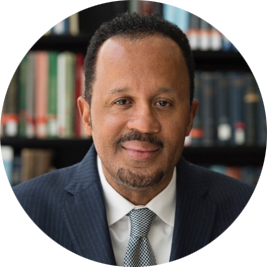
Dexter R. Voisin, PhD
Professor & Dean,
Sandra Rotman Chair in Social Work,
Factor-Inwentash Faculty of Social Work,
University of Toronto
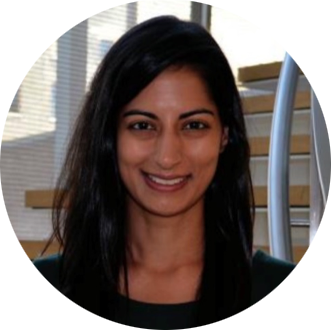
Dr. Reena Pattani, MDCM MPH FRCPC
Staff Physician, Division of General Internal Medicine, St. Michael’s Hospital;
Assistant Professor, Department of Medicine, University of Toronto;
Director of Learner Experience, Temerty Faculty of Medicine, University of Toronto
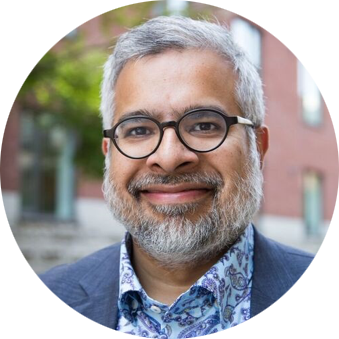
Dr. Nouman Ashraf
Assistant Professor, Organizational Behaviour & Human Resources, Director, Equity, Diversity and Inclusion; Rotman School of Management, University of Toronto
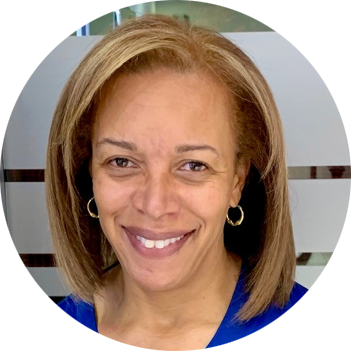
Dr. Mireille Norris BSc Phys Ther, MD, FRCPC, MHsc
Staff Internist Geriatrician;
Education Director for the Hospitalist Training Program;
Faculty Lead for Geriatric Medicine, Sunnybrook Health Sciences Centre;
Faculty Lead for Black and Indigenous Learners for the DOM, University of Toronto
Workshops: Creating a Safe & Inclusive Learner Environment
All workshops are available 12:15-1:45 p.m.
Power, Privilege and Allyship in the Learner Environment: When the goal is more than checking boxes »
Workshop time: 12:15 – 1:45 p.m.
This session focuses on “practising critical allyship,” which is an orientation for moving from actions that are performative and reinforce the status quo, to actions that are transformative and contribute to building safer and more inclusive learning environments.
Objectives:
- Build capacity regarding privilege and what to do with/about it
- Develop a working knowledge of intersectionality and why an intersectional analysis matters for safe and inclusive education
- Unpack the crucial role of whiteness in shaping learning environments, and build capacity among participants for imagining alternatives
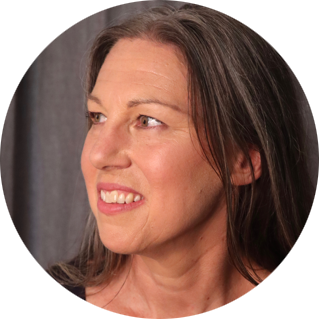
Professor, Department of Physical Therapy, cross-appointed at Rehabilitation Sciences Institute and the Dalla Lana School of Public Health, University of Toronto
Stephanie Nixon is a Professor in the Department of Physical Therapy, cross-appointed at the Rehabilitation Sciences Institute and the Dalla Lana School of Public Health, at the University of Toronto. She completed her PhD in Public Health and Bioethics in 2006 at the University of Toronto, and a post-doc at the University of KwaZulu-Natal in South Africa from 2006-2008. Stephanie is a straight, white, middle class, able-bodied, cisgender, settler woman who tries to understand the pervasive effects of privilege. In particular, she explores how systems of oppression shape health and community care, research and education, and the role of people in positions of unearned advantage in disrupting these harmful patterns. Stephanie developed the Coin Model of Privilege and Critical Allyship as a way to translate core ideas about anti-oppression and anti-racism to people in positions of unearned advantage. She has conducted workshops on the Coin Model with more than 100 groups including universities, hospitals, community-based organizations and professional associations across Canada and internationally.
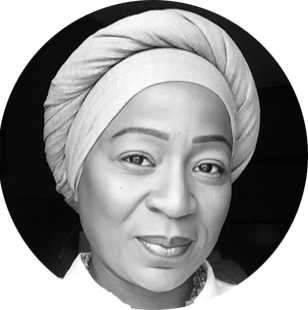
PhD candidate, Faculty of Medicine, Rehabilitation Services, University of Toronto; AI, Medicine and Data Justice Postdoctoral Fellow, Queen’s University
Llana James is a public intellectual and scientist. Her career spans the private sector and public service. She examines how technology, including Artificial Intelligence (AI), disrupts the practice of health care, while it increasingly redefines the human, public health and health-care systems. LLana develops, implements and evaluates interventions at the intersection of race-ethnicity, medicine, public health, health systems, data, Artificial Intelligence and the law. She is wrapping up her PhD in the Faculty of Medicine, Rehabilitation Sciences at the University of Toronto. LLana is the Artificial Intelligence, Medicine and Data Justice Postdoctoral Fellow at Queen’s University.
The Challenges Surrounding International Medical Graduates' (IMGs') Education: The Good, The Bad and Not so Simple »
Workshop time: 12:15 – 1:45 p.m.
The broad goal of this workshop is to create a safe space for educators/teachers/colleagues of International Medical Graduates (IMGs) to enhance their understanding around the changing landscape of IMGs and identify the challenges faced in the context of equity, diversity and inclusion (EDI).
The interactive workshop will provide an overview of the diversity of IMG learners and share common approaches from EDI perspective to help prepare participants to critically observe, effectively question and appropriately assess this unique group of learners.
Objectives:
- Describe the changing landscape of IMGs
- Discuss perceptions about IMG learners
- Identify the challenges and opportunities as perceived by IMG learners & faculty
- Develop an approach to supporting IMG learners from various backgrounds and with different levels of success
Umberin Najeeb MD, FCPS (Pak), FRCPC
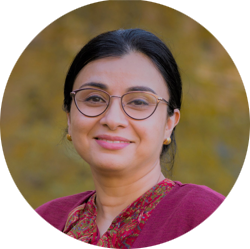
Associate Professor of Medicine, Equity Lead, & Co-Director Master Teacher Program; Department of Medicine, University of Toronto;
Faculty Lead IMG/IFT Mentorship Program;
Core Internal Medicine Program, University of Toronto;
Staff Internist, Division of General Internal Medicine,
Sunnybrook Health Sciences Centre, Toronto
Dr. Najeeb is an Associate Professor of Medicine and a Staff Internist at Sunnybrook Health Sciences Centre. She is the Equity Lead for the Department of Medicine and the Co-Director of the Department of Medicine’s Master Teacher program at the University of Toronto. She is the Faculty Lead for a unique research-based longitudinal collaborative mentorship program for International Medical Graduates (IMGs). Dr. Najeeb served as the Faculty Lead for the R4 Internal Medicine Program (2012-2018) and has led its development into one of the most successful postgraduate programs in the Department of Medicine.
As a Pakistani-born, Canadian Muslim woman, her unique perspective impacts and informs her clinical and scholarly work. Her areas of scholarly focus are 1) Transition and integration of IMGs (and other internationally educated health professionals) into their training and working environments and 2) Health professions education with specific focus on curriculum design, faculty development and mentorship. Dr. Najeeb has won numerous teaching and mentorship awards at the local, provincial and national level. She teaches around the constructs of equity, diversity, inclusion and allyship at undergraduate, postgraduate and faculty-development levels.
Managing Microaggression: Simulation Workshop to Enhance Assertiveness Skills »
Workshop time: 12:15 – 1:45 p.m.
Microaggressions are subtle comments or actions that express stereotype and prejudice towards a member of a marginalized group. Learn how to spot them and build allyship in this 90-minute interactive workshop. This workshop is designed for all levels of experience. Objectives:- Explore commonly encountered microaggression situations through interactive simulations
- Participants will engage in building assertiveness skills and supportive allyship
- Simulations will provide an opportunity to apply skills through experiential practice
- Reflect and debrief in an interprofessional group environment
Agnes Ryzynski, BHSc, MHSc, RRT, CTDP
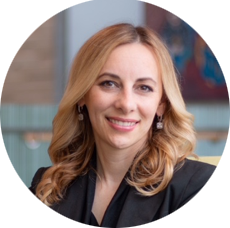
Director, Simulation Centre, Sunnybrook Health Sciences Centre
Agnes is passionate about designing sustainable interventions for building high performing healthcare teams. In addition to her 29 years as a Respiratory Therapist and Anesthesia Assistant, she has focused her education on health-care leadership, simulation-based innovation, interprofessional team communication research and simulation in quality improvement and risk management. She is an appointed researcher at Sunnybrook and the recipient of the 2018 Leo N. Steven Excellence in Leadership Award. Agnes has obtained her Master of Health Science in Translational Research from the Faculty of Medicine (Institute of Medical Science) University of Toronto. Her passion for driving best practice education, research and innovation has taken her beyond the walls of Sunnybrook delivering numerous workshops and consultation projects (Canada and US).

Psychiatrist-in-Chief and Vice President, Education, Sunnybrook Health Sciences Centre
Dr. Ari Zaretsky is a Full Professor in the Department of Psychiatry at the University of Toronto. He is Chief of the Department of Psychiatry and Vice President of Education at Sunnybrook. Over the last 10 years he has won a number or awards for teaching excellence including the Association of Chairs of Psychiatry of Canada (ACPC) Award for Excellence in Education, the Irma Bland Award for Excellence in Education from the American Psychiatric Association and the Temerty Faculty of Medicine Sarita Verma Award for Advocacy and Mentorship in Postgraduate Education. Dr. Zaretsky’s areas of scholarly work include CBT for bipolar disorder, CBT training and supervision, medical leadership and residency education.
Diversity & Inclusion an Intentional Design: An invitational practice »
Christopher Townsend
Workshop time: 12:15 – 1:45 p.m.
This workshop will introduce participants to the concept of equity and how equity combines with different social identities to determine power and privilege.
Inclusion in its purest form fosters an environment where individuals bring every aspect of themselves to work, to excel and to share ideas to affect the future of health care. The invitation sets the tone for a shared space for lived experiences to influence inclusivity. This tone creates the learning culture with team members from varied backgrounds, perspectives and experiences, creating an environment reflective of the community it serves.
Objectives:
- Identify behaviours that impact inclusion
- Design actions and strategies that promote inclusion
- Discuss a platform for informed decisions on creating an inclusive culture
Christopher Townsend M.Ed, CTDP, ESP
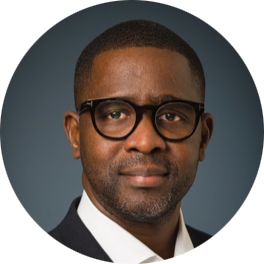
Manager, Organizational Development & Leadership (OD&L); Sunnybrook Leadership Institute (SLI); Co-Lead, President’s Anti-Racism Taskforce (PART), Sunnybrook Health Sciences Centre
Christopher Townsend is the Manager, Organizational Development & Leadership (OD&L) and Sunnybrook Leadership Institute (SLI) and Co-Chair of the President’s Anti-Racism Taskforce (PART), combining his lived and professional experience, as an advocate of change. Christopher serves as committee member on Sunnybrook Education Advisory Council (SEAC) and serves as a facilitator for the Schwartz Centre Rounds. Christopher is a recent graduate of the Educator Scholars Program, Centre for Faculty Development, University of Toronto and is currently enrolled in the Rotman Leadership Program. Christopher is a published author and volunteers his time as a musician, teacher and mentor in several community-based initiatives.
Barriers to Accessibility: Parts 1 & 2 »
Workshop time: 12:15 – 1:45 p.m.
This two-part workshop will provide participants with a foundational knowledge on how communication and language can create barriers to accessibility and how to address these barriers. Participants will be (re-) introduced to Accessibility for Ontarians with Disabilities Act (AODA) guidelines for accessible communication.
Objectives:
- Understanding language and terms that may be problematic for accessible communications
- Learn about language changes over time
- Discuss how this knowledge could impact interactions across hospital and university communities moving forward
Part 1: Language, Ableism and Accessibility with Ben Poynton and Reshma Dhrodia
Ben Poynton LLM
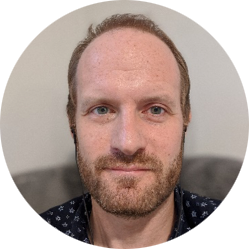
Accessibility for Ontarians with Disabilities Act Officer, University of Toronto
Ben was drawn to his work by an interest in the philosophical underpinnings of human rights and how they support social justice. He promotes compliance to the Accessibility for Ontarians with Disabilities Act (AODA) — a piece of legislation in Ontario aimed at making the places we work, live and learn as accessible as possible — and ultimately seeks to lead the university beyond compliance. Ben works to help members of the university community understand our legal obligations, how accessibility is broadly defined, and how we can create an institution that values disability and the changes in perspective it brings. He does this, in part, by facilitating workshops and training across the institution related to accessibility in all areas of the life of the university. Ben holds Master of Laws from the University of Warwick in International Development Law and Human Rights and currently sits on the provincial committee establishing new AODA standards in the post-secondary sector.
Reshma Dhrodia, MA, MSW, RSW
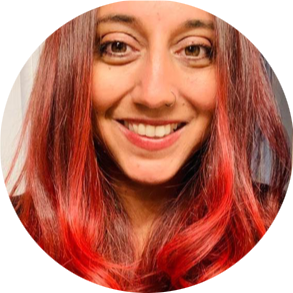
On Location Team Lead, Accessibility Services, University of Toronto
Reshma Dhrodia is a trauma-informed social worker, educator and social justice advocate whose professional interests include disability, equity/diversity/inclusion/access (EDIA), gerontology and gender-based violence. She has worked with numerous organizations within the GTA including the Centre for Addictions and Mental Health, Scarborough Women’s Centre, Toronto Rape Crisis Centre/Multicultural Women Against Rape and West Park Healthcare Centre. Between 2012 and 2014, she managed a project to engage post-secondary students to prevent gender-based violence at the University of Toronto Scarborough campus. In 2014, she delivered a TEDx talk on age discrimination called, “The Trouble with Aging” based on learnings and experiences gained while working with older adults in Toronto Community Housing homes. Since 2016, Reshma has worked within the University of Toronto St. George Campus Accessibility Services office to support and accommodate students with disabilities. She has served as the Chair of their EDIA Committee since 2019 and is currently the Team Lead for On Location Accessibility Advisors. Her work across the tri-campus has included co-designing and facilitating EDIA trainings for students, staff, faculty and librarians. She was the recipient of the 2021 Jill Matus Excellence in Student Services Award, an Award of Excellence designed to honour inspiring community members. In the greater community, she serves on the Board of Directors for the Urban Alliance on Race Relations, and the Leonard Foundation. In her spare time, she enjoys reading, cooking, yoga, volleyball, dancing, gardening and time with feline friends.
Part 2: Introduction: Best Practices for Student Disability-related Accommodations at Hospital Placement Sites
Dr. Tony Pignatiello, MD, FRCP (C)
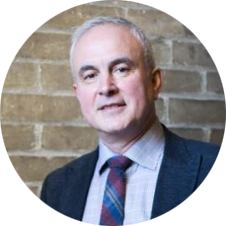
Associate Dean, Health Professions Student Affairs, Temerty Faculty of Medicine, U of T
Dr. Pignatiello is the Associate Dean, Health Professions Student Affairs for the Temerty Faculty of Medicine at the University of Toronto. He is a Child & Adolescent Psychiatrist who has worked in various community and health sciences settings. Dr. Pignatiello is also the Medical Director of the provincial TeleLink Mental Health Program at the Hospital for Sick Children, Toronto where he was also previously the Associate Psychiatrist-in-Chief. He is an Associate Professor with the Department of Psychiatry, University of Toronto and has won awards for teaching and his work on telepsychiatry.
Dr. Pearl Levey, PhD
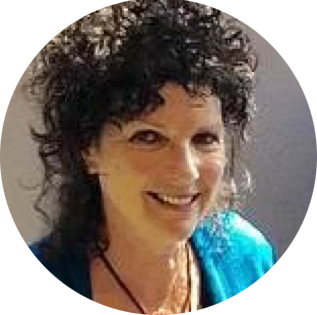
Accommodations Specialist, Practicums, Placements and Laboratories, Accessibility Services, University of Toronto
Dr. Pearl Levey has worked in the field of learning disabilities for over 40 years. She has a Ph.D. degree in Special Education from the Ontario Institute for Studies in Education in Toronto, and she has worked as a Disability Advisor at Accessibility Services, at the University of Toronto, since 1990. Since 2017 she has been working in the role of Accommodations Specialist for Practicums, Placements and Laboratories. In addition to her work at the University of Toronto, Dr Levey had a private practice in Toronto from 1986 until 2017 where she conducted psycho-educational assessments and provided consultations for both children and adults. She is one of the founding members of the Ontario Branch of the International Dyslexia Association.
Dr. Levey is also a member of the Access in Medicine (AIM) Group, which is a nationally representative group of disability resource professionals, faculty, researchers and providers addressing changes to medical education necessitated by the COVID-19 pandemic.
Lisa van der Laan, MSc. OT Reg. (Ont.)
Accessibility Advisor, Professional Health Faculties, Accessibility Services, University of Toronto
Lisa van der Laan is an Accessibility Advisor at the St. George Campus of the University of Toronto. Lisa’s portfolio includes working with students and staff in professional faculties to help navigate and implement disability-related accommodations. Lisa has a Master of Science in Occupational Therapy from the University of Toronto and is a registered Occupational Therapist. Lisa previously worked as an Occupational Therapist at the Centre for Addiction and Mental health (CAMH), supporting adults with mental illness in their recovery journeys and with their goals. Lisa has additional certifications in Cognitive Behaviour Therapy, Dialectical Behaviour Therapy, Cognitive Adaptation Training and Trauma Counselling for Front Line Workers and has mentored numerous mental health clinicians and students. Lisa uses a client-centred, holistic approach to her work and is passionate about connecting students with disabilities with resources and navigating accommodations to help level the playing field specifically in the clinical environment.
Developing a Collaborative and Inclusive Teaming Culture »
Dr. Nouman Ashraf
Workshop time: 12:15 – 1:45 p.m.
The constant state of change has created new challenges for how learning institutions continue to meet the needs of their students and their communities. In this highly interactive session, participants will connect with a practical framework of fostering a culture of high psychological safety and high accountability.
Objectives:
- Enable staff to be agile and adaptive in how they work together and meaningfully contribute to the wellbeing and excellence of everyone in the organization.
- Explore how to connect individual choices with team behaviours through case studies and a series of breakout group conversations.

Assistant Professor, Organizational Behaviour & Human Resources, Director, Equity, Diversity and Inclusion. Rotman School of Management, University of Toronto
Nouman Ashraf is an Assistant Professor, Teaching Stream within the Organizational Behavior area at the Rotman School of Management.
He possesses a broad range of professional, academic and research interests, with a specialized focus on enabling inclusive and innovative practices within teams, organizations and boards. For the last decade and a half, he has held progressively senior roles at the University of Toronto, including most recently as the Director of Equity, Diversity & Inclusion the Rotman School of Management.
He is a recognized thought leader in governance and has taught thousands of directors in the national Rotman program on Not for Profit Governance in partnership with the Institute for Corporate Directors since its inception in 2007.
Optimizing the Learning Experience of Black and Indigenous Medical Students »
Workshop time: 12:15 – 1:45 p.m.
Learn about the experience of Black and Indigenous medical learners from literature and university survey. Objectives:
- Learn about the strategic plan for improving the experience of Black and Indigenous Medical learners at the University of Toronto
- Learn about SPARK (Sunnybrook Program Accessing Research Knowledge for Black and Indigenous medical students)
- Learn about other programs at the University of Toronto which focus on providing improved learning opportunities for Black and Indigenous learners

BSc Phys Ther, MD, FRCPC, MHsc; Staff Internist Geriatrician; Education Director for the Hospitalist Training Program; Faculty Lead for Geriatric Medicine, Sunnybrook Health Sciences Centre; Faculty Lead for Black and Indigenous Learners for the DOM, University of Toronto
Dr. Mireille Norris is an Internist and Geriatrician at Sunnybrook Health Sciences Centre in Toronto. She is the Physician Lead for Quality Improvement and post-grad education for the Division of Geriatrics at Sunnybrook. Her role also includes Assistant Professor of Medicine at the University of Toronto and Education Director for the Sunnybrook Hospitalist Training program which she created and implemented at Sunnybrook in 2005. Dr. Norris has a focus of interest in dementia care, fall prevention, quality improvement and medical education. As a former physical therapist, she is interested in alleviating pain syndromes, optimizing physical functioning and preventing pain in patients with multiple co-morbidities.
Her interest in marginalized physician education has been enhanced by the experience of recruiting and mentoring international medical graduates for the hospitalist training program. Further, her own experience as a Black female French-speaking physician was instrumental in empowering her trainees which are now successful in many provinces, the United States and Europe. Dr. Norris is eager to bring this experience to mentoring Black and Indigenous residents applying for residency positions in the DOM at the University of Toronto. Her passion for equity, inclusion and diversity is also reflected in her participation on the Sunnybrook President Anti-Racist Task force and other equity initiatives at the hospital and University of Toronto's Temerty School of Medicine, as well as her commitment to service to the Black community at the TAIBU COVID vaccination clinic and at the Centre Francophone de Toronto.
Special Presentation: Education Research & Scholarship »
This special showcase features 5-minute presentations by several Education Research & Scholarship Grant recipients highlighting their work. Each presentation will include a Q & A.
- Lesley Gotlib Conn “Surgical Trainee's Beliefs and Attitudes regarding the Value of Geriatric Trauma Care in Residency Training”
- Marlene Jacobson & Janet Ellis “Improving Person-Centred Care (PCC) and Symptom Management for Patients with Head and Neck Cancer (HNC) through Inter-professional Multimodal Education and Implementation of Site-specific Symptom Screening: A pilot study”
- Giovanna Sirianni “A Qualitative Study Exploring the Potential Role of the ‘About Empathy Podcast’ as a Medical Education Teaching Tool”
- Dominique Piquette “Exploring Moral Orientation, Moral Decision-Making, and Moral Distress among Medical Students, Residents, and New Faculty: A mixed-methods study”
- Mikki Campbell “Defining Requisite Knowledge, Skills & Best Practices for Magnetic Resonance Imaging (MRI) in Radiation Therapy using a Delphi Process”
- Alayne Kealey “Validation of a Novel Resident Assessment Tool to Support a Competency-based Medical Education Curriculum”



